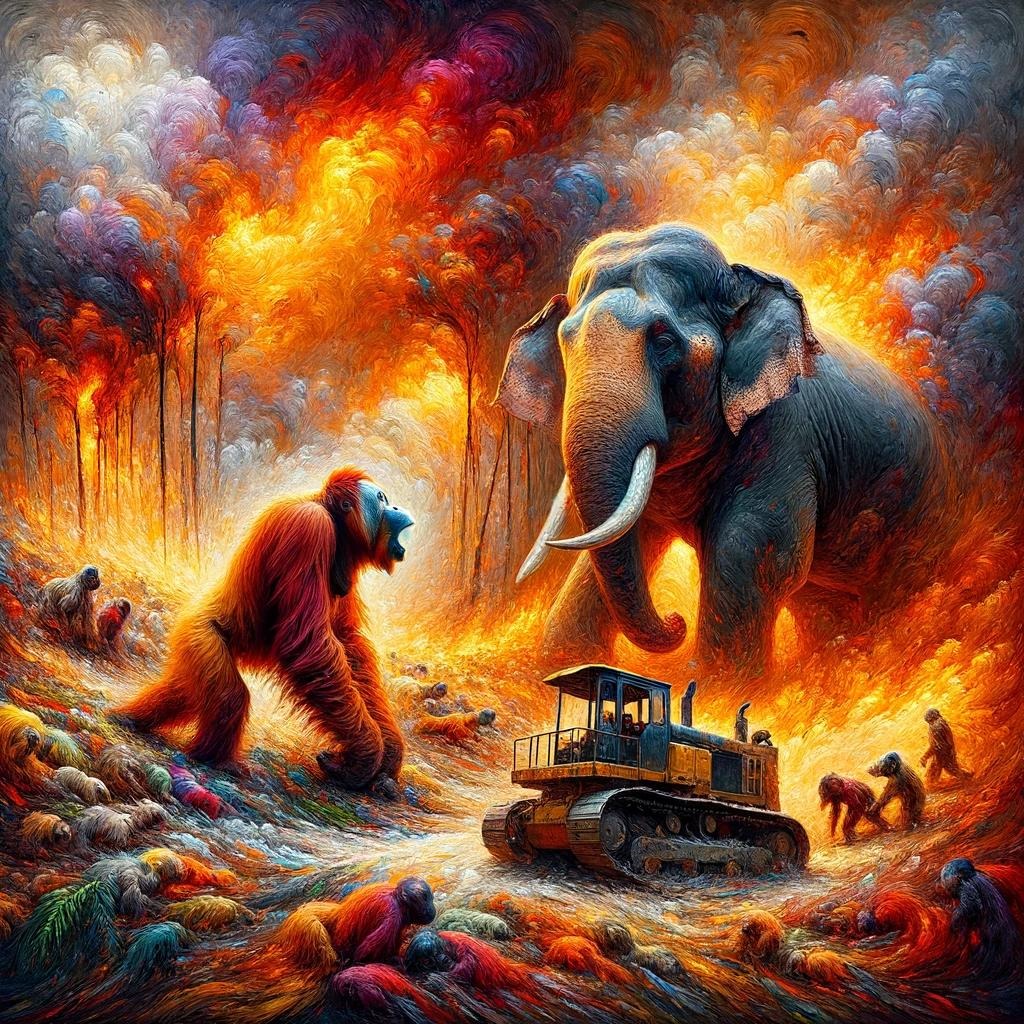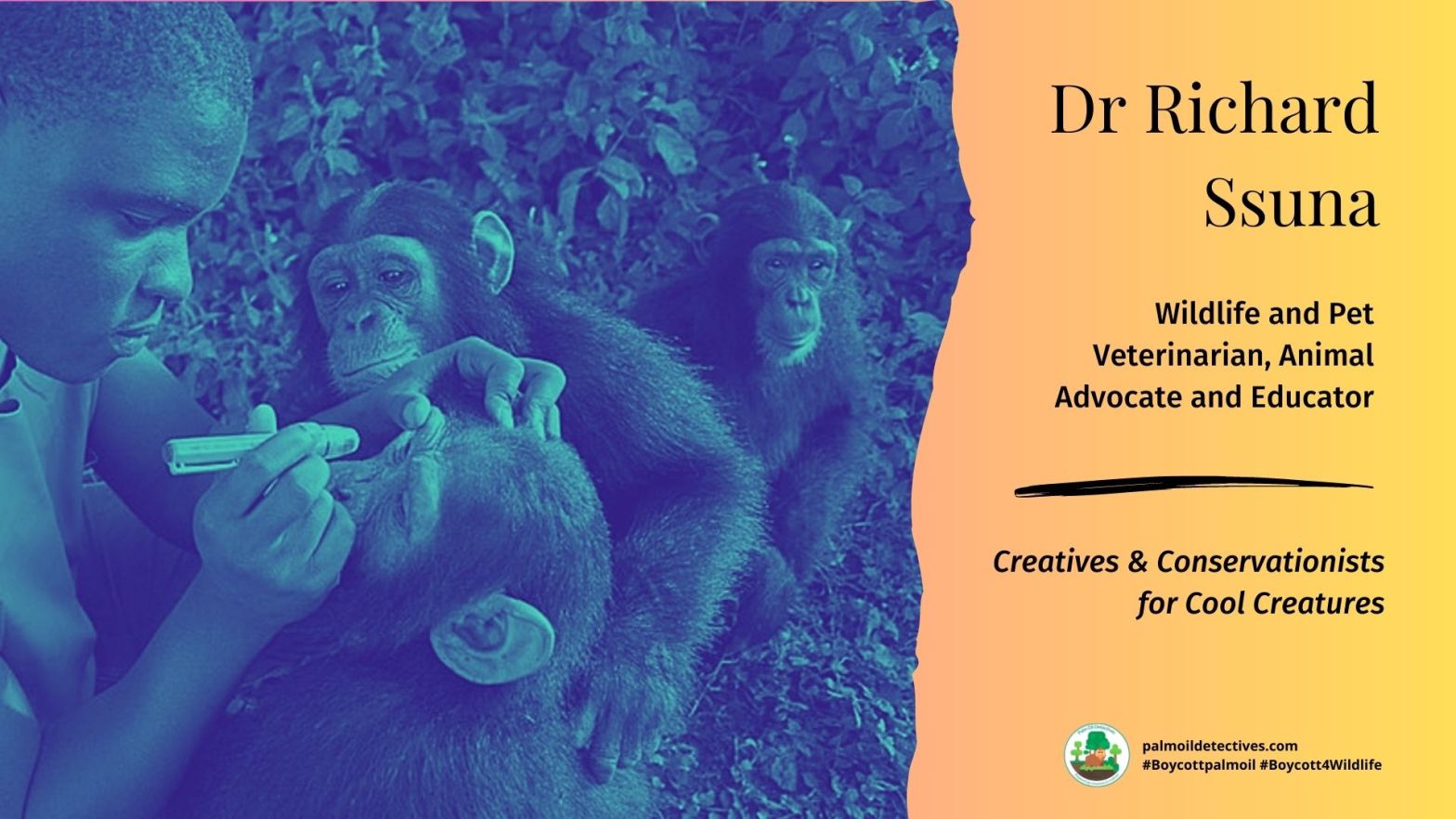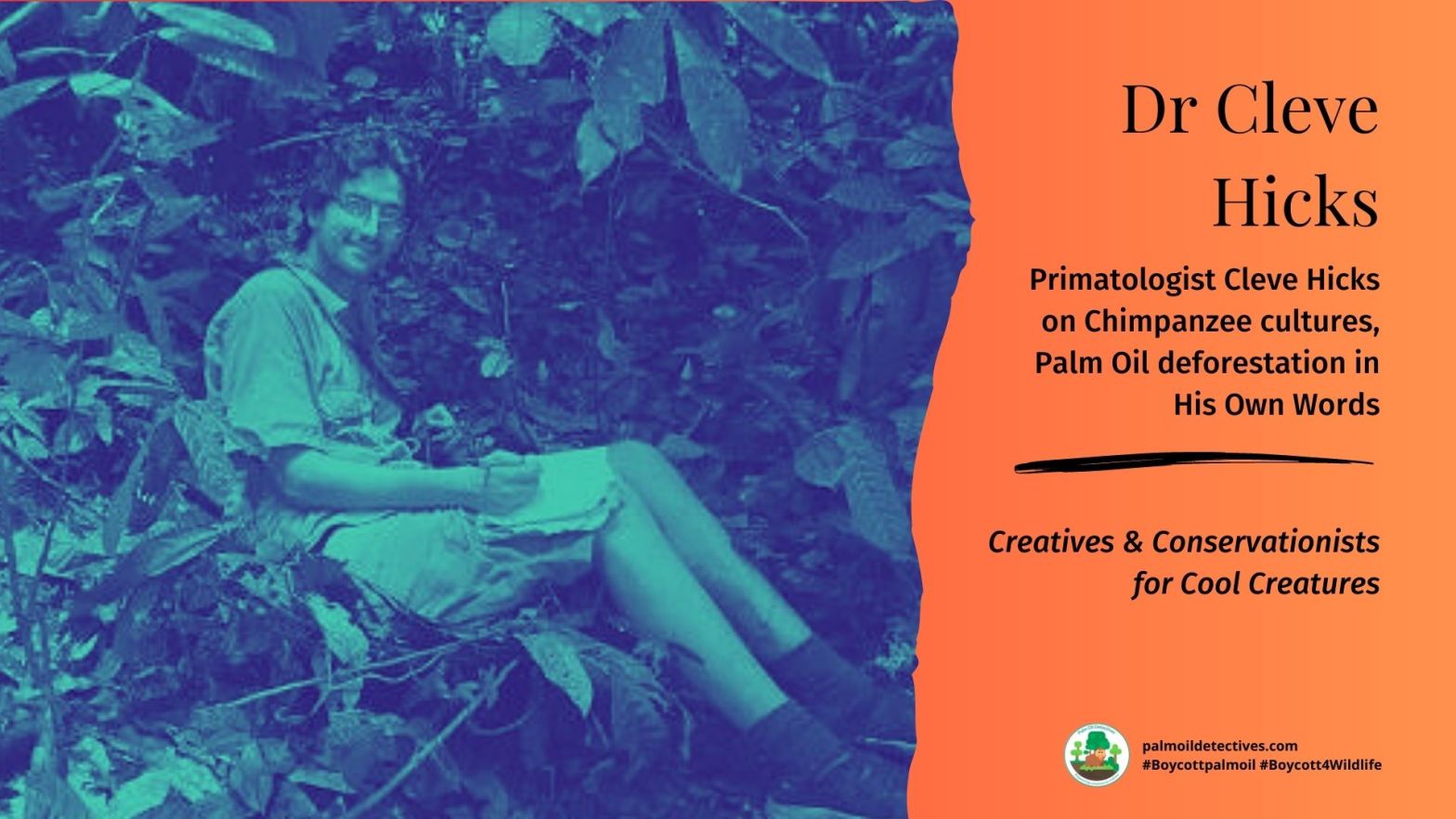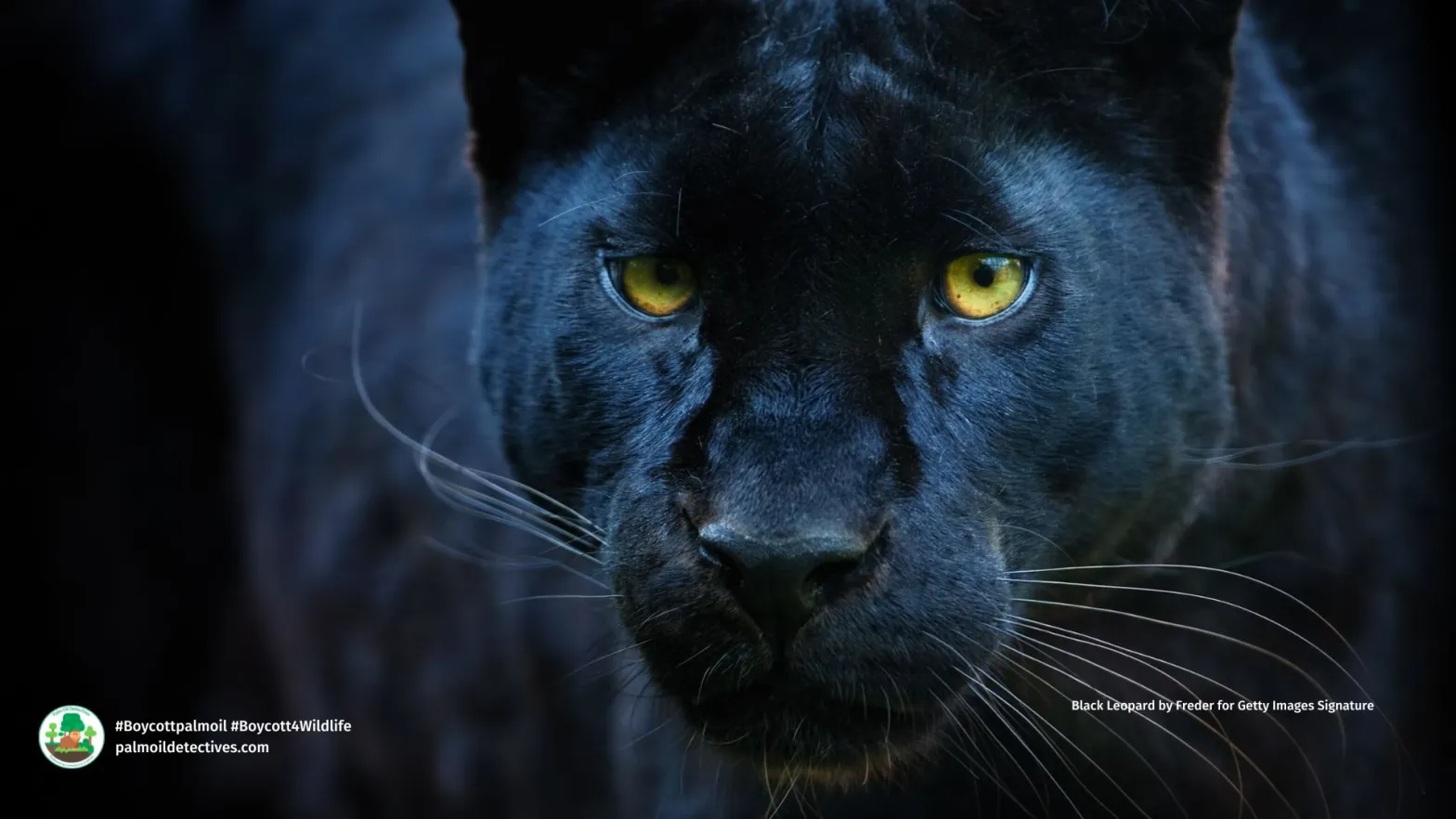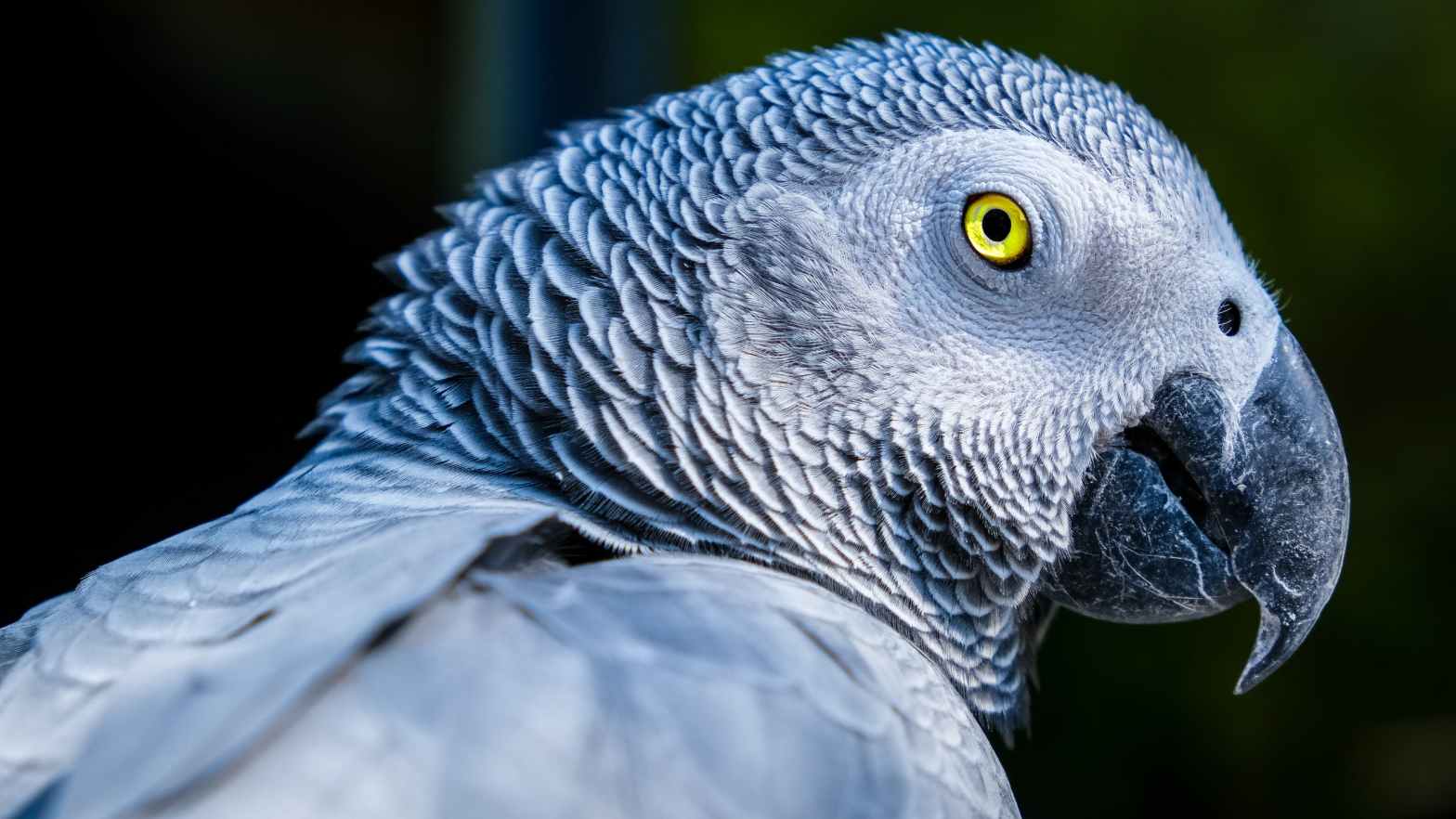It seems we are having a hard time paying sufficient attention to the climate and extinction crises. This is because the causes for the most part move slowly, without the flashy drama that can focus our minds in the midst of 24-hour news cycles and social media distractions. The Netflix film Don’t Look Up cleverly captures our inability to focus on and come together to counter such a common threat. To change this, we must develop a “slow memory” that can help us care about and act on slow change. #Boycottpalmoil #Boycott4Wildlife
Tag Archives: wildlife
Preventing pandemics costs far less than controlling them
“It turns out prevention really is the best medicine. We estimate we could greatly reduce the likelihood of another pandemic occuring by investing as little as 1/20th of the losses incurred so far from COVID into [wildlife and rainforest] conservation measures designed to help stop the spread of these viruses from wildlife to humans in the first place.” writes Professor Stuart Pimm, Doris Duke Professor of Conservation Ecology at Duke University.
Mel Lumby: The beautiful begonias of Borneo and beyond deserve our love and protection
Begonias, along with orangutans and many other rainforest inhabitants are in danger now. Will these precious jewels of the jungle be located by scientists, described, eventually named and shared, so that people can love and marvel at their incredible beauty? Or will the bulldozer get there first, destroying where they live, making way to plant oil palm plantations for cheap palm oil? Retired horticulturalist and animal advocate Mel Lumby will keep fighting for as long as she lives.
Africa’s rainforests are different. Why it matters that they’re protected
Martin Sullivan, University of Leeds; Oliver Phillips, University of Leeds, and Simon Lewis, UCL Around 2 million km² of Africa is covered by tropical rainforests. They are second only in extent to those in Amazonia, which cover around 6 million km². Rainforests are home to vast numbers of species. For example, the world’s tropical rainforestsContinue reading “Africa’s rainforests are different. Why it matters that they’re protected”
Why join the #Boycott4Wildlife?
According to a 2021 survey by Nestle of 1001 people, 17% of millennial shoppers (25-45 years old) completely avoid palm oil in the supermarket. 25% said that they actively check to see if products contain palmoil. As a generation, we now have the opportunity to push our local communities and our children away from harmfulContinue reading “Why join the #Boycott4Wildlife?”
Wildlife Vet Dr Richard K Ssuna: In His Own Words
Dr Richard K. Ssuna has been caring for (wild and domesticated) animals as a Veterinarian for over 20 years. In the past he’s worked for the Uganda Society for the Protection and Care of Animals (USPCA), the Jane Goodall Institute and Chimpanzee Sanctuary, Wildlife Conservation Trust on Ngamba Island Chimpanzee Sanctuary and the Lilongwe Wildlife Centre. Dr Ssuna also established the Lilongwe Society and Protection of Animals (LSPCA) and also worked as the technical advisor for the Second Chance Chimpanzee Refuge in Liberia. He is currently the Founder of All Creatures Animal Welfare Trust in Malawi, Lesotho and Uganda.
In a real sense, the public has been hoodwinked into believing that a palm oil certification equates to a more sustainable product and as result, companies fetch even more cash for it. Read more about by Dr Ssuna does advocates for the #Boycottpalmoil #Boycott4Wildlife
Primatologist Cleve Hicks on Chimpanzee cultures, Palm Oil deforestation in His Own Words
Dr Hicks speaks with Palm Oil Detectives about his chimpanzee research, veganism, deforestation, palm oil and what consumers can do to help the endangered animals of Africa.
The why, what and where of the world’s black leopards
Did you know that Black #leopards only differ from other leopards by the colour of their coat, a genetic variation that’s #recessive also known as melanism? One of their threats is #palmoil #deforestation. Help their survival #Boycottpalmoil #Boycott4Wildlife in the supermarket
Wildlife Photographer Craig Jones: In His Own Words
One of Britain’s finest wildlife photographers, Craig Jones uses his own words to bear witness to the awesome love and intelligence of orangutans, and also shares stories of the immense suffering of orangutans and other species within RSPO member palm oil plantations. Craig is an absolute inspiration to photographers, animal lovers and conservationists. It is an honour to showcase his work and stories on Palm Oil Detectives.
Eyewitness by Craig Jones: A mother and baby orangutan are rescued from an RSPO palm oil plantation in Sumatra
Bio: Craig Jones One of Britain’s finest wildlife photographers, Craig Jones is also one of the most humble and down-to-earth guys you will ever meet. His photography and stories capture the lives of endangered rainforest animals that we hold so dearly to our hearts: Sumatran orangutans, Sumatran tigers, Sumatran elephants, Siamangs and more. His workContinue reading “Eyewitness by Craig Jones: A mother and baby orangutan are rescued from an RSPO palm oil plantation in Sumatra”
Climate Explained: what would happen if we cut down the Amazon rainforest?
Sebastian Leuzinger, Auckland University of Technology What would happen if we cut down the entire Amazon rainforest? Could it be replaced by an equal amount of reforestation elsewhere? Removing the entire Amazon rainforest would have myriad consequences, with the most obvious ones possibly not the worst. Most people will first think of the carbon currentlyContinue reading “Climate Explained: what would happen if we cut down the Amazon rainforest?”
What’s my name? How wild parrots identify their young
Sunanda Creagh, The Conversation Wild parrots name their chicks by teaching them an individual sound to identify them, researchers have found. Humans and dolphins create unique sounds by which individuals are identified and there was some evidence to suggest captive parrots created ‘contact calls’ – special calls used to identify family and friends. But untilContinue reading “What’s my name? How wild parrots identify their young”
We don’t know how many mountain gorillas live in the wild. Here’s why
Katerina Guschanski, Uppsala University How important are the mountain gorillas of Uganda’s Bwindi Impenetrable Forest National Park to global populations? A new census – carried out by the Greater Virunga Transboundary Collaboration (a coalition of governments, non-profits and conservationists) in 2018 – shows that the population of mountain gorillas in Uganda’s Bwindi Impenetrable Forest NationalContinue reading “We don’t know how many mountain gorillas live in the wild. Here’s why”
Video: Slowing deforestation is the key to preventing the next pandemic – but what does that cost?
Les Kaufman, Boston University In a recent journal article, a team of biologists, medical scientists, environmental scientists and conservationists proposed a number of measures to reduce the likelihood of future pandemics, many of which originate with wild animals such as bats. They argue that spending billions of dollars per year – a fraction of theContinue reading “Video: Slowing deforestation is the key to preventing the next pandemic – but what does that cost?”
Humans force wild animals into tight spots, or send them far from home
The COVID pandemic has shown us that disruptions to the way we move around, complete daily activities and interact with each other can shatter our wellbeing. This doesn’t apply only to humans. Wildlife across the globe find themselves in this situation every day, irrespective of a global pandemic. Our latest research published today in NatureContinue reading “Humans force wild animals into tight spots, or send them far from home”
Rainbow Cliffs: Why Parrots in the Amazon Eat Clay
Our world holds a whole host of glorious natural spectacles, from great starling murmurations to the ethereal display of coral reef spawning. But to me, none is more thrilling than catching a glimpse of a majestic macaw. Screeching their way through the Amazon rainforest, leaving scattered fruit, broken branches, and a considerable quantity of parrotContinue reading “Rainbow Cliffs: Why Parrots in the Amazon Eat Clay”
What would happen if we lost all wildlife?
Have you ever thought about what would happen if we lost all our wildlife? Thoughts on what our planet will turn into, always make my stomach hurt. Can you imagine having no wildlife anywhere? The scary rate that extinction is taking away our wildlife The rate is crazily high and we seem not to really understand howContinue reading “What would happen if we lost all wildlife?”
Dalida Innes: Wildlife photoj0urnalist and animal advocate
My name is Dalida Innes, I am from France originally and I live in Sydney, Australia. I love wildlife, landscape, travel photography and everything between. I am self-taught with a sincere passion for all things photographic
Adventurous spirit with camera in hand, I try to capture moments of wonder and serenity. For me, capturing images is like freezing the time and I can go back to it whenever I want. Trying to get that precise moment that your eye doesn’t have time to memorise or to remember.
How does COVID-19 affect Wildlife Conservation?
How does COVID 19 affect Wildlife Conservation? This pandemic has affected several continents, and everyone seems to be at its mercies. It’s sad to see people lose lives, property, jobs, among others. It’s crippling the economy and results to be a pandemic pushing us to a very difficult corner. No Money = No Tourism ApartContinue reading “How does COVID-19 affect Wildlife Conservation?”
Okapi: African Unicorns
Deep in the heart of Africa, in the dense tropical rainforests of the Democratic Republic of the Congo (DRC), there lurks a very curious creature. With its long legs and predominantly dark brown coat of short fur, it looks, at first glance, a bit like a horse. But a second look will reveal a somewhatContinue reading “Okapi: African Unicorns”

